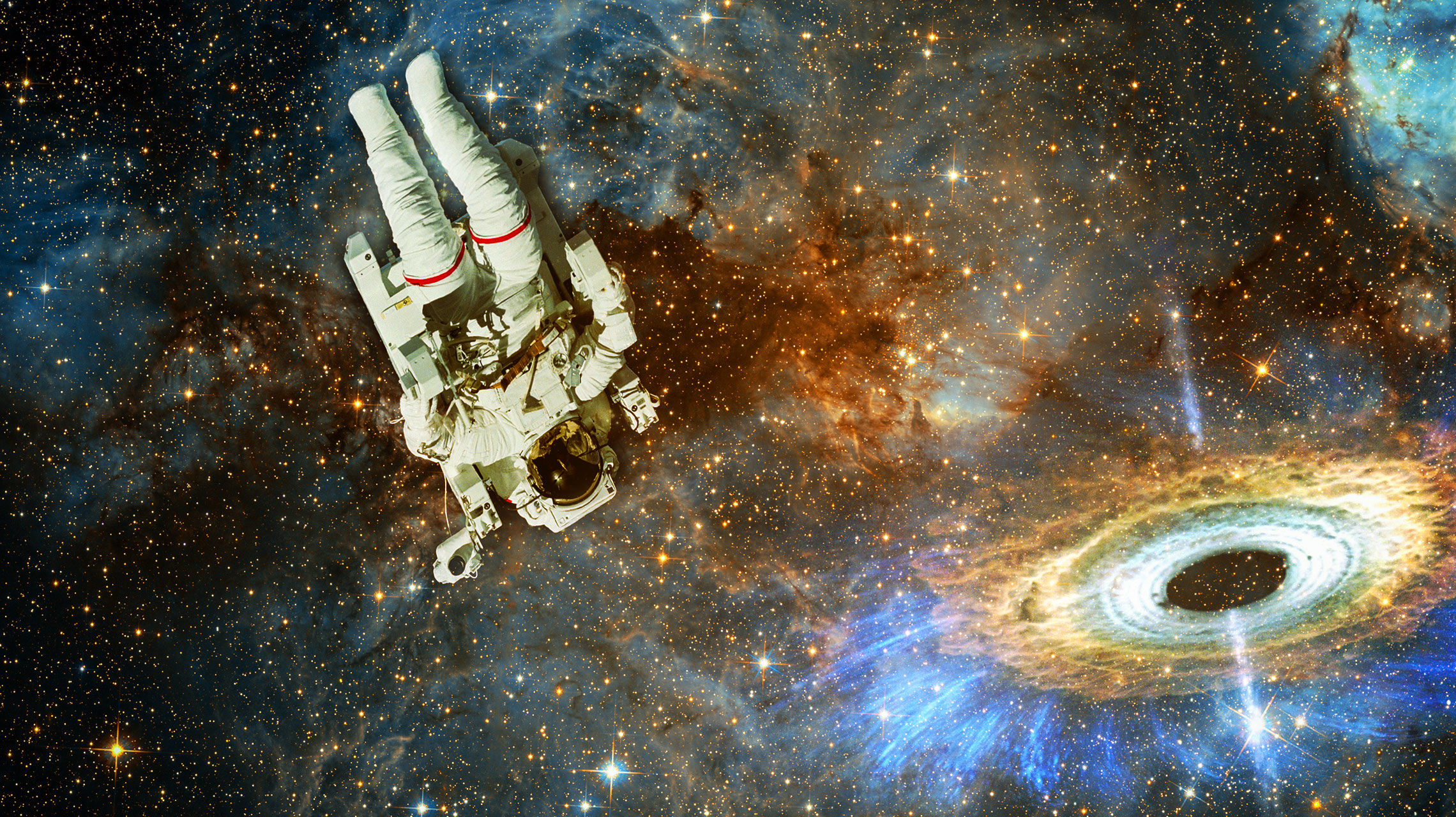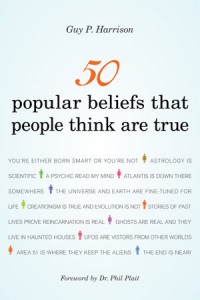Create a free profile to get unlimited access to exclusive videos, sweepstakes, and more!
Natural born scientist

 Guy Harrison is a skeptic and author -- he wrote a book called 50 Popular Beliefs That People Think Are True, which is really quite good. It's a readable and fun tour of a pile of popular misconceptions with, of course, their antidotes.
Guy Harrison is a skeptic and author -- he wrote a book called 50 Popular Beliefs That People Think Are True, which is really quite good. It's a readable and fun tour of a pile of popular misconceptions with, of course, their antidotes.
I was honored when Guy asked me to write the foreword for it, and I happily complied. The book came out recently, and shortly thereafter I received a lovely email from a reader. He was a Mormon but recently lost his faith, and he said that "being a non-believer often results in ostracizing and a loss of identity. When one is trained their whole life to believe, and then that belief is shattered, one often ends up with a hole in their soul, an emptiness."
This hole, he went on, was helped by the words I had written in the foreword. I was so moved by this I asked Guy if I could put the entire foreword here on the blog, and he happily agreed. So here it is; I hope you like it, and that the words resonate with you as well.
No one is born a skeptic.
Kids are natural scientists, though. They love to soak up knowledge, explore, experiment, name things (I can still remember my very young daughter, all those years ago, asking me to name the stars in the sky, one after another).
I suppose not all of that is really science, though. Memorization and categorization are important, and the foundation of being able to understand relationships between objects, but they're not science. The basic property that makes science science is that it's self-checking. You don't just make an assumption; you test it. You see if it works the next time you use it. And you don't assume that just because it did, it always will.
And the most important thing, the one aspect of science that sets it apart from all other methods of knowing, is that science isn't loyal. You can rely on an idea for years, decades, but if something comes along that proves the idea wrong, boom! It gets chucked out like moldy cheese.
Well, not always. The other thing about science is that it builds on previous knowledge. If you learn something works pretty well, and then something else comes along that does better, a lot of the time you find out the second thing is just a modification of the first. Einstein didn't trash Newton; relativity updated Newton's mechanics, made it work better when objects are traveling near the speed of light, or where there's lots of gravity.
It was the accumulation of knowledge, of fact, that modified Newton's ideas. Hard-won, too, with experiments that contradicted centuries of "common wisdom". But that knowledge, when it's correct, builds over time. It all has to work, like a tapestry. And it does.
Still, it's hard to let go of an idea even when you know it's wrong. Sometimes the idea is stubborn (or its holder is). Sometimes it's comforting to have a warm, fuzzy idea. I bet that most of the time, though, it's ego, pure and simple. We identify with the ideas we keep, and if that idea is wrong, then that means some part of us is wrong. That's a difficult issue to deal with.
And that's why kids can be natural born scientists, but terrible skeptics. And that's OK; sometimes kids need to just do stuff "because I said so", and you don't want them always questioning you. The real problem comes when they grow up and don't let go of that characteristic.
We all do it. Believing is easy. Being skeptical is hard. It's the road less traveled, rough-hewn and difficult. There are pitfalls everywhere, scary dark places, things that would be so much easier just to wish away when we close our eyes.
But reality, as author Philip K. Dick said, is what doesn't go away when we stop believing in it.
Reality doesn't care what you believe, what you do, for whom you vote. It just keeps on keeping it real. And since that's the case, isn't it better to see it for what it is? When you believe in something that's wrong, other beliefs glom onto it, getting more complicated, getting harder and harder to balance and reconcile, like a pyramid built upside down. You build up more and more nonsense until the contradictions get so glaringly obvious your only choice is to either completely ignore them, compartmentalizing your beliefs, or to let it all come crashing down.
You have to face reality.
In this book you will read about many such heels-over-head pyramids. Aliens. The Moon hoax. Bigfoot. Some are larks, fun little tidbits of silliness that on their own don't do much harm.
Others are dangerous. "Alternative" medicines that not only don't help, but keep people from seeking real medicine, making them sicker. Intercessory prayer, which is proven not to do anything, but which people sometimes employ instead of seeking real help. Self-proclaimed "psychics" who prey on the bereaved and grieving. And of course creationism, which shuts down curiosity and turns a blind eye to the true, and very ancient, nature of the world.
Science kicks over that pyramid, and sets it on its stable base. The best thing about science â and its mulitpurpose toolkit, skepticism â is that they show you how the Universe really is. Yes, it can be scary, dark, and impersonal. But that's OK because it's also complex, deep, marvelous, profound, wondrous, magnificent⦠and above all, beautiful.
That beauty is out there. All you have to do is stop believing in it, and start understanding it.


























